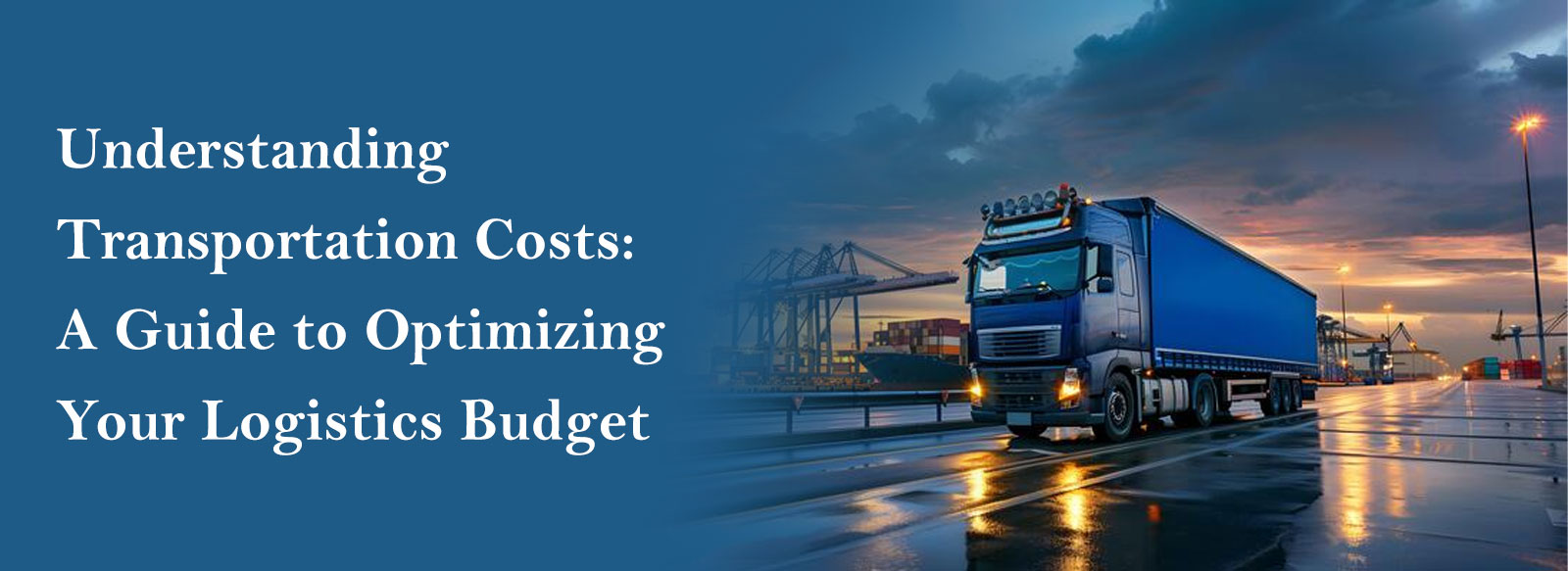Understanding Transportation Costs: A Guide to Optimizing Your Logistics Budget
Transportation costs are a significant factor in logistics and supply chain management. For businesses like Jyoti Freight, understanding these costs is essential to streamline operations and maximize profits. Whether you're shipping goods locally or internationally, being aware of the various factors affecting transportation costs can help you make informed decisions and optimize your logistics budget.
1. Key Components of Transportation Costs
Transportation costs consist of multiple elements that contribute to the overall expense:
- Fuel Charges: Fuel prices are a major determinant, fluctuating based on global market conditions.
- Distance and Route: Longer distances and complex routes can increase costs due to higher fuel consumption and potential toll charges.
- Freight Type: The nature of the goods being transported, such as perishable, hazardous, or oversized cargo, requires specialized handling and may increase costs.
- Mode of Transport: Costs vary depending on the mode, such as road, rail, air, or sea. Air transport is faster but more expensive, while sea transport is economical for bulk freight.
2. Factors Influencing Transportation Costs
Several external and internal factors influence transportation expenses:
- Supply Chain Efficiency: Inefficient processes, such as delayed shipments or improper route planning, can escalate costs.
- Seasonal Demand: During peak seasons, such as holidays or harvest periods, transportation rates may surge due to increased demand.
- Regulatory Compliance: Adhering to government regulations, such as permits or weight restrictions, may incur additional expenses.
- Technology Integration:Investing in GPS tracking and route optimization tools can help reduce operational costs but may require initial setup investment.
3. Hidden Costs in Transportation
While primary costs like fuel and freight charges are apparent, there are hidden costs to consider:
- Idle Time Costs: Delays caused by traffic, loading/unloading, or customs clearance can add to overall expenses.
- Maintenance and Repairs: Regular upkeep of vehicles ensures smooth operations but is a recurring expense.
- Insurance Premiums: Protecting goods and vehicles against damage or loss is an essential but sometimes overlooked cost.
4. Tips to Manage and Reduce Transportation Costs
To optimize your logistics budget, consider the following strategies:
- Optimize Load Capacity: Maximize the use of available space in trucks or containers to reduce the number of trips required.
- Leverage Data Analytics: Use analytics tools to monitor costs, identify inefficiencies, and implement corrective measures.
- Choose the Right Freight Partner: Partnering with a reliable company like Jyoti Freight ensures cost-effective and timely transportation solutions.
- Negotiate Rates: Establish long-term contracts with carriers to secure favorable pricing.
5. The Role of Jyoti Freight in Cost Management
Jyoti Freight offers customized logistics solutions to help businesses manage transportation costs effectively. From advanced tracking systems to efficient route planning, Jyoti Freight ensures that your logistics operations run smoothly without exceeding your budget.
Conclusion
Understanding transportation costs is critical for businesses aiming to optimize their logistics budget. By identifying key cost components, addressing hidden expenses, and implementing strategic measures, companies can achieve significant savings. Jyoti Freight stands ready to assist with tailored solutions that balance cost, efficiency, and reliability, ensuring your logistics needs are met with excellence.



